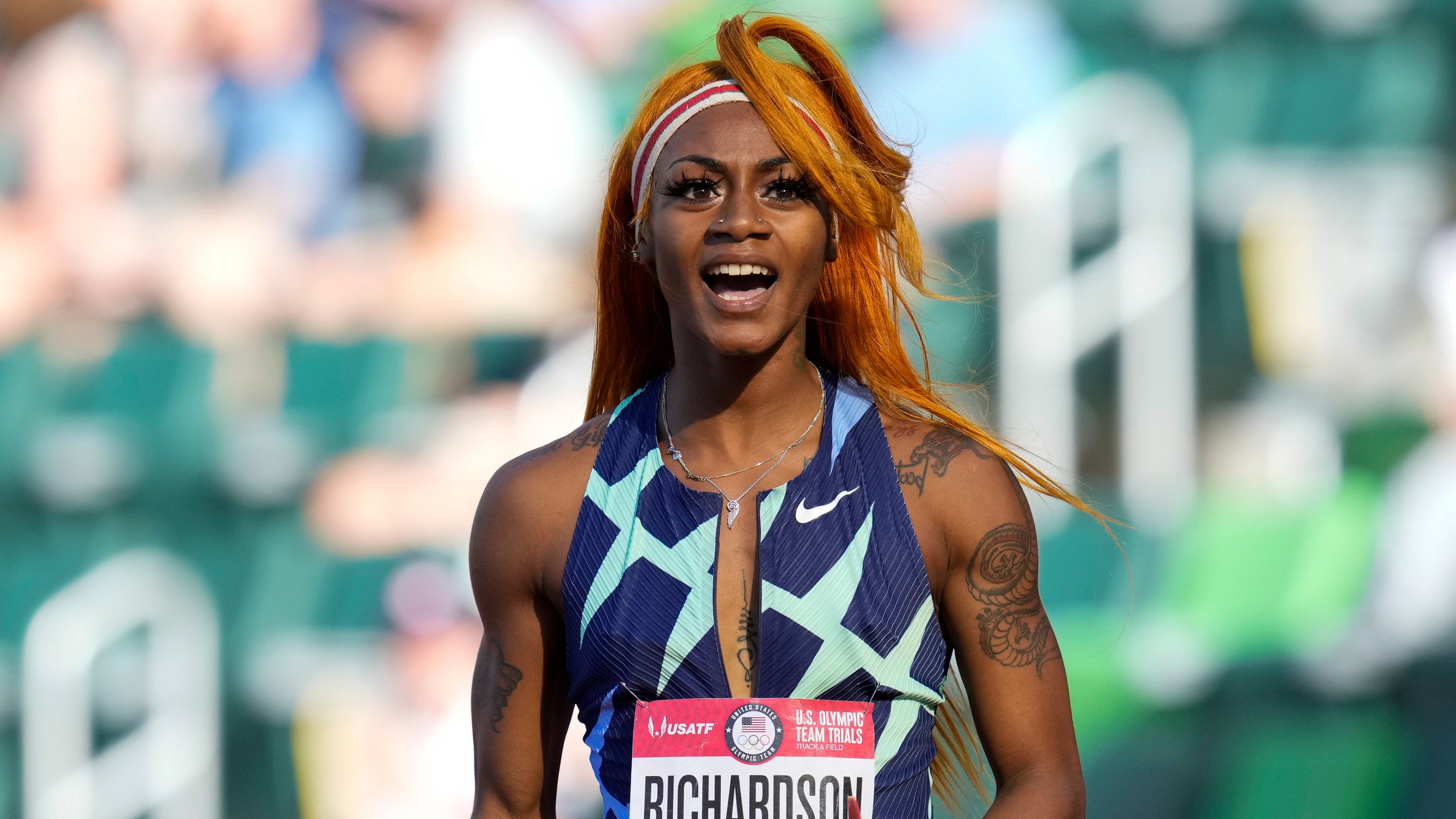Who is Sha’Carri Richardson and why isn’t she competing at Tokyo 2020?
Texan sprinter forced out of Olympics after testing positive for marijuana but unquestionably has bright track future ahead of her

Your support helps us to tell the story
From reproductive rights to climate change to Big Tech, The Independent is on the ground when the story is developing. Whether it's investigating the financials of Elon Musk's pro-Trump PAC or producing our latest documentary, 'The A Word', which shines a light on the American women fighting for reproductive rights, we know how important it is to parse out the facts from the messaging.
At such a critical moment in US history, we need reporters on the ground. Your donation allows us to keep sending journalists to speak to both sides of the story.
The Independent is trusted by Americans across the entire political spectrum. And unlike many other quality news outlets, we choose not to lock Americans out of our reporting and analysis with paywalls. We believe quality journalism should be available to everyone, paid for by those who can afford it.
Your support makes all the difference.American sprinter Sha’Carri Richardson, 21, who specialises in the 100 and 200 metres, is missing this year’s Tokyo Olympics after testing positive for THC, the psychoactive component in marijuana.
Following the successful completion of a counselling programme, she received a one-month ban that began on 28 June, meaning she could have been back in contention in time to take part in the US women’s relay race, but her last hope was dashed earlier this month when USA Track and Field elected to leave her out of the squad.
The failed drugs test also meant her 10.86-second time for the 100 metres recorded at the US Olympics Trials in Eugene, Oregon, last month was chalked off, a score that would have put her in contention for medals in Japan.
Richardson had already recorded the second-fastest time in the world for her discipline in April this year at 10.72, just behind Jamaican favourite Shelly-Ann Fraser-Pryce on 10.63, and had hoped to become the first American woman to claim Olympic gold in the 100 metres since Gail Devers at Atlanta in 1996.
Cannabis is banned by the World Anti-Doping Agency (WADA) but, if athletes can prove that their ingestion of the substance was unrelated to sports performance, a suspension of three months rather than the usual four years is imposed.
If an athlete is willing to undertake an approved treatment programme in collaboration with their national anti-doping body, then the ban can be reduced to one month, as was the case with Richardson.
She responded to the scandal by tweeting simply “I am human” and giving an emotional interview to NBC’s Today Show in which she said she had turned to marijuana as a means of coping with her mother’s death, which she discovered from a reporter, an experience she says sent her into “a state of emotional panic”.
“I’m blessed to be alive,” Richardson told the programme. “I’m responsible for my actions. I know what I did, I know what I’m supposed to do, what I’m allowed not to do, and I still made that decision. I’m not making any excuse or looking for any empathy in my case, being in that position of my life, finding out something like that, something that I would say is one of the biggest things that have impacted me positively and negatively in my life, dealing with the relationship I had with my mother.
“That was definitely a very heavy topic on me. To put on a face and go in front of the world, who am I to tell you how to cope when dealing with a pain and a struggle that you’ve never experienced before or thought you’d have to deal with. Who am I to tell you how to cope with it? Honestly, leading up to that with my mental health, leading up to the Games, definitely expected to be a record-breaking time or something like that, that pressure in itself.
“The information came from a complete stranger, it was definitely triggering. That sent me into a state of emotional panic. Even though I’m still here I still have to go out and compete. It was definitely triggering, blinded by emotion, blinded by sadness and hurt. I can’t hide myself.”
Sha’Carri Richardson was born in Dallas, Texas, on 25 March 2000.
She won the 100 metres title at the AAU Junior Olympics as a teenager in 2016 and followed that triumph with another win at the USA Track & Field Junior Championships in 2017.
That same year, she won gold at the Pan American U20 Athletics Championships on her international debut, part of a 400-metre relay team with Gabriele Cunningham, Rebekah Smith and Tara Davis.

She subsequently enrolled at Louisiana State University and began running with the Lady Tigers track and field team, running the 100 metres in a record-breaking 10.75 seconds at the National Collegiate Athletic Association Championships, attracting national notice and turning professional not long after.
While this summer’s controversy is unquestionably a setback for this exciting new talent, Sha’Carri Richardson is already an icon and will surely be back on the world stage very soon.
Her case attracted the attention of New York congresswoman Alexandria Ocasio-Cortez, who attempted to argue that cannabis could hardly be considered a performance-enhancing drug and that Richardson’s suspension was racist in an attempt to overturn it, an argument hotly refuted by both the WADA and the US Anti-Doping Agency.
US president Joe Biden also waded in, supporting Richardson’s suspension for breaking the rules but suggesting the strict testing of athletes should be revisited in light of the incident.



Join our commenting forum
Join thought-provoking conversations, follow other Independent readers and see their replies
Comments